Laucks Foundation Topics of Interest
|
|
|
The possibility of climate change is one of the big issues of the 21st century. Climate (the average weather and conditions over a region for a long period of time) affects individual lives, societies, cultures, nations, other species and the earth as a whole. If there are rapid large changes in the climate of regions or the earth as a whole, the potential exists for sea level rise, storm damage, heat-waves, drought on a global scale that will cause crop failures, species extinction and human population collapse. In all cases individual human, animal and plant lives will be adversely affected, or lost and the earth will be changed for millennia. The economic costs of these effects on human societies may collapse the infrastructure (financial, internet/telecommunications, highways, air transportation) we take for granted today.
Unfortunately, the science of climate change is uncertain (and may be for some time) so there is much disagreement about what future climate will be like.
So it is imperative that human societies find ways of deciding how to act now, without the benefit of certainty of knowledge. Indecision is itself a choice, and will become irrevocable within a decade or so at most.
This "Topic of Interest" includes articles and organizations attempting to clarify or understand the science of climate change as well as the ethics of the decision making process.
|
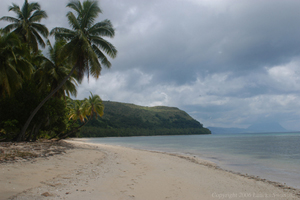
|
|
|
At the heart of the decision-making process about climate change is the subject of what energy sources will power human communities in the future, as both regulation on greenhouse gases increase, and fossil fuels become more expensive. We feel that every thinking person should understand the basic science and economics of energy production, and understand the facts of the petroleum industry in order to better understand the alternatives.
This "Topic of Interest" includes articles about the science and economics of various energy industries, as well as links to organizations working towards alternative energy sources.
|
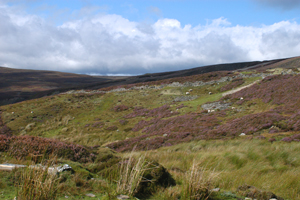
|
|
|
This "Topic of Interest" is meant to provide access to the most dynamic and interesting areas in biology today. Most of the science referenced here is more speculative than the usual "bread and butter" science. Currently we are particularly interested in questions about the origins of life in the universe (astrobiology), in questions about the physical basis of our memories, sense of self and free volition, and the question of consciousness (neuroscience).
|
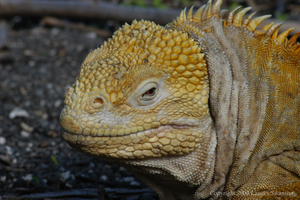
|
|
|
As Wes Jackson of the Land Institute points out, we are not facing problems in agriculture in the coming decades, but the 10,000 year-old problem OF agriculture. The next 100 years will be a test of the practice of agriculture. On the one hand, there may be as many as 9 billion people by the year 2050, and in order to feed them all agricultural output must increase by 70% from current yields. On the other hand agriculture already produces 24% to 33% of total global greenhouse gas (IPCC 2014) and, depending on what is included, is a large contributor to climate change.
Thus agriculture must fundamentally change if it is both to supply more food and to emit less GHG. Almost 90% of the total agricultural emissions are due to methane and nitrous oxide (from livestock production), so changing livestock production practices would seem to have the greatest potential for reduction of GHG. What must we change in our current agricultural practices and what does this mean for the food we eat? Food is an integral part of every society and culture - both as an essential requirement for life, and as a deeply personal experience of the place each person inhabits both physically and culturally. Climate change mitigation, world hunger, human population, social equity, economics, and politics intersect in these questions about the future of agriculture.
In this topics section we try to bring together links and articles on all aspects of the problem of agriculture - how do we feed the number of people we have now and will be born in the future without damaging the means of producing the required food?
|
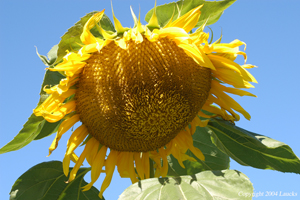
|
|
|
In today's conversation about human induced climate change, "sustainable" development, carrying capacity and environmental footprint, the elephant in the room is the continued growth of human population. Latest projections of human population in 2100 are in the range of 9.6 to 12.3 billion and so indicate that human population is unlikely to stop growing this century.
Links and articles in this section focus on the impact of human population growth on the earth, the debates about how to slow the growth (what factors are important), and the ethical problems of "controlling" human population.
|

|
|
|
How do we make decisions as a society? How do we use our limited knowledge to guide the future of our societies. How do humans come to consensus for future actions when there are so many of us? With planet-scale changes now occurring as a result of human actions, we need to begin to think about how decision-making can be done on a global scale. Does it happen among leaders or does it happen on social media and blogs? What is the role of democracy? Are there models for functioning democracies that can work on large scales - 7-9 billion people? If, as many political and moral philosophers of the past have advocated, each person has a responsibility to their family, community and nation to act for the good of others, what does one person do in these times of seemingly unsolvable global-scale problems? Which is more important if choices have to be made: the family, the community, the nation or the earth?
This topic of interest ranges across a large spectrum of issues, dealing mostly with human society and politics and how each individual human interacts with larger groups, and ultimately how each person can try to act ethically on a global scale.
|

|
|
|
This topics section attempts to draw together links and articles that address fundamental human questions - what is our place in the universe, how did the universe come into being, what existed before the universe, how do we think about these questions, why do we ask these questions, can there ever be knowledge of these questions? We come at these questions from a scientific point of view, but of course these questions may not have answers within science.
We have a section that contains links and articles where you can find the most current understanding of fundamental scientific cosmology.
We also have a section that has links to sites and articles that try to understand religion as a human response to these fundamental questions of existence. Both religion and science try to answer fundamental questions, but have very different methods. However, it is human beings who are asking the questions. So how different are religion and science? Can religion be reduced to biology - is there a human genetic predisposition to religiosity? Has science become a religion because its subject matter is beyond empirical tests (e.g. blackholes, strings, the very early universe)? If religion and science exist in non-overlapping realms, and are thus essentially irreducible, how are they reconciled within an individual who happens to be both a scientist and religious?
|
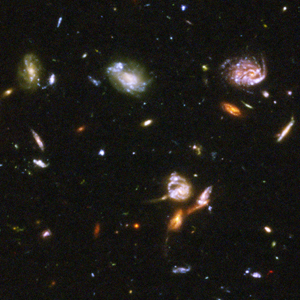
|
|
|
This section links to various sites and articles ideas about "no growth", "steady state", or "new" economics. The idea of limits to economic growth can be traced back to at least Adam Smith in The Wealth of Nations. Many people have recognized that classical economic activity can be characterized as an entropic process - as the market economy takes finite resources and turns them into both consumable products and waste products, the overall entropy of the system increases. What this typically means is that natural resources are used to make consumable products and waste, so with finite natural resources, economic activity runs until the finite resources are exhausted. This insight has led to the idea of steady-state economic activity - an economy that uses renewable resources and controls/reuses waste products, so that the overall entropy of the system is constant, or increases very slowly. As stated on the Center for Advancement of the Steady State Economy's website, "A steady state economy... aims for stable or mildly fluctuating levels in population and consumption of energy and materials. Birth rates equal death rates, and production rates equal depreciation rates." Critics of this idea point out that, with increases in efficiency, the inputs to economic growth can decline, at least in a relative way (ie per unit of goods produced). However, in an absolute sense, because of population growth, the total amount of inputs to the goods produced continue to grow.
|

|
|
Back to Main Page
|
|

